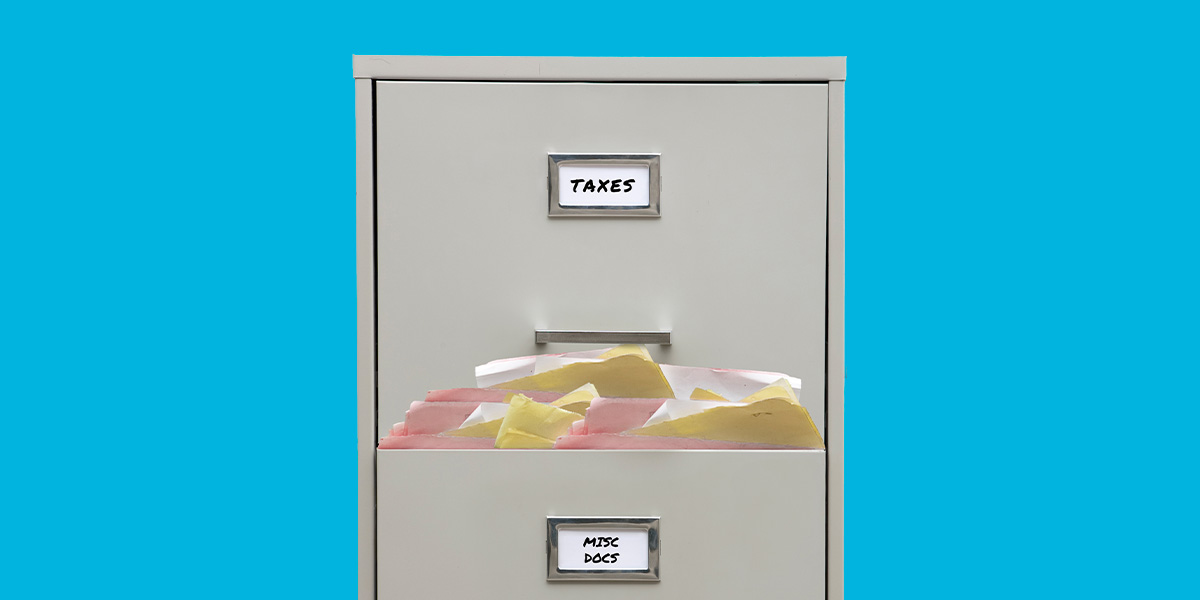-
Personal Banking -
Insights
6 Common Financial Fraud Schemes to Look Out For
Digital banking makes it easy to manage your financial life, but it can also provide opportunities for criminals to steal funds electronically. Fraudsters and criminals are using increasingly sophisticated tactics to exploit vulnerabilities in the financial system and siphon funds from unsuspecting victims.
Your online accounts include information about your assets, debts, spending patterns and financial history. Because so much critical information is available online in a single place, your bank accounts are prime targets for potential fraud.
To protect your information and your hard-earned money, it's wise to understand the tactics criminals use. Below are details about six common schemes to defraud you or your account and what you can do to help protect your information and money from fraud.
1. Identity Theft
Criminals can steal important personal data — such as your Social Security number, home address and sensitive financial information — to assume your identity and commit fraudulent activities for financial gain.
Some signs of identity theft include:
- Getting bills for items or services you didn't personally use.
- Getting calls from debt collectors.
- Missing mail from your mailbox.
- Unanticipated changes to your credit report.
Scammers can steal your identity and use it to open unauthorized accounts or apply for new credit cards or loans in your name that they then use to make unauthorized purchases.
You can mitigate the damage caused by identity theft by monitoring your accounts, regularly looking for unauthorized activity and setting up fraud alerts with your bank.
2. Email Compromise
Criminals often manipulate or imitate an individual or business email account to impersonate one of your trusted contacts, such as a family member, colleague, boss or vendor. In these scams, known as Business Email Compromise (BEC) when they occur at work, the criminal manipulates communications to deceive you into revealing sensitive information or making payments to accounts they control.
With an email compromise scam, fraudsters may impersonate your boss or financial institution's email account and contact you asking for your password or bank account number. To avoid falling victim to an email compromise scam, always verify email requests for fund transfers or changes to payment instructions by phone or another trusted channel outside of email.
3. Deposit Account Fraud
Deposit account fraud occurs when your bank account is exploited or manipulated, including through fraudulent checks or Automated Clearing House (ACH) or wire transactions.
One of the most common forms of deposit account fraud was dramatized in the movie “Catch Me If You Can," the story of a real-life fraudster who forged or altered checks to withdraw funds from victims' accounts.
Criminals may intercept, counterfeit or manipulate checks, leading to financial losses for individuals and businesses alike. You should carefully monitor your accounts for unusual activity. For added security, consider using electronic payment methods instead of checks.
4. Stolen Credit or Debit Cards
When someone steals your credit or debit card or card numbers, they can get direct access to your funds. Criminals can use these cards to make unauthorized purchases or withdrawals.
To mitigate your risk, you should promptly report lost or stolen cards, only enter card information online on secure sites and enable real-time transaction notifications to help detect any suspicious activities and alert you about them.
5. Peer-to-Peer Payments
In an era where digital transactions are seamless and instantaneous, peer-to-peer payment platforms have revolutionized how we transfer money. Popular peer-to-peer payment services include Zelle, Cash App, Venmo and Paypal. These platforms make it easy to share costs with friends and family for things like restaurant meals, tickets or gifts.
But despite their convenience, peer-to-peer payment platforms have emerged as a ripe opportunity for fraudsters. They exploit the trust that we have in these platforms to trick users into sending money for goods or services that never materialize. Before transferring funds through a peer-to-peer payment system, always verify the legitimacy of recipients and avoid sharing personal information with unknown parties.
6. Account Takeover
An account takeover scam involves criminals gaining complete and unauthorized access to your account. They are often able to do this by obtaining your login credentials through cybersecurity attacks such as phishing, malware, social engineering or data breaches.
Once the criminal gains access, they can steal personal information, change settings, conduct unauthorized transactions, or even further manipulate you or your contacts. Protect yourself by using strong passwords, enabling multi-factor authentication for your accounts, and regularly reviewing your account activity.
Staying Safe Requires Being Proactive
As technology advances, fraudsters adjust their tactics to exploit your vulnerabilities. However, armed with knowledge and vigilance, you can keep one step ahead of these criminals.
Regularly monitor your accounts, employ strong security measures and be skeptical of unsolicited communication. By staying informed and proactive, you can safeguard your financial well-being and enjoy the benefits of the modern financial world without the fear of falling victim to these common fraud schemes.
Additionally, be certain to check the FBI's cyber crime page for up-to-date information about financial fraud schemes.
This article is for general information and education only. It is provided as a courtesy to the clients and friends of City National Bank (City National). City National does not warrant that it is accurate or complete. Opinions expressed and estimates or projections given are those of the authors or persons quoted as of the date of the article with no obligation to update or notify of inaccuracy or change. This article may not be reproduced, distributed or further published by any person without the written consent of City National. Please cite source when quoting.





